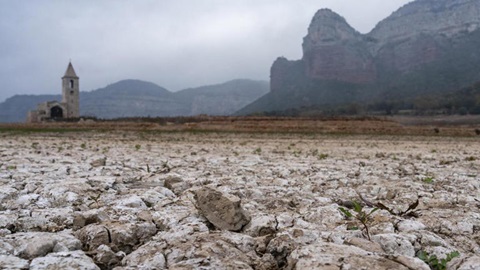ICTA-UAB will identify the most effective proposals to better adapt the territory to climate change
A new ICTA-UAB project titled “Systematization of nature-based solutions in Spain (E:SBN), will carry out a comprehensive identification and compilation of nature-based solutions in Spain, as a reference of good practices for adequate adaptation to climate change in each territory.

As a country particularly vulnerable to climate change, Spain faces significant challenges, risks and impacts to which it must adapt both proactively and reactively. The scarcity of water resources, an increase in temperatures, and an increase in the intensity and volume of extreme rainfall events are causing droughts, water shortages, fires, floods and soil erosion, among other problems.
A new ICTA-UAB project titled “Systematization of nature-based solutions in Spain (E:SBN), will carry out a comprehensive identification and compilation of nature-based solutions in Spain, as a reference of good practices for adequate adaptation to climate change in each territory. The project is funded by the Biodiversity Foundation of Spanish Ministry for the Ecological Transition and the Demographic Challenge through the Grants call in competition regime for the execution of projects that contribute to implementing the 2021-2030 National Plan for Adaptation to Climate Change (PNACC).
Climate change affects ecosystems and their biodiversity, as well as human health and well-being. The extent of the impact depends on the degree of vulnerability of natural and agroforestry areas, of people and their urban environment, and on the prevention, adaptation, and resilience capacities of territories.
Strengthening the capacity to adapt to climate change is therefore an urgent task to be addressed in Spain, and Nature-Based Solutions (NBS) must play a prominent role. According to the United Nations (UN; 2022), NBSs are actions to protect, conserve, restore, use, and sustainably manage different types of ecosystems to address social, economic, and environmental challenges in an effective and adaptive manner, while providing benefits to human well-being, ecosystem services, resilience and biodiversity. The use of NBSs is considered one of the key measures to adapt to climate change. However, in Spain there is no system for cataloguing NBSs at the national level, which could be useful for their future applicability at local level.
Therefore, the E:SBN project aims to create a system for identifying, classifying and cataloguing nature-based solutions created in different types of ecosystems in Spain, from parks, green corridors, coastal and wetland restoration to climate refuges, so that their planning and implementation, both in urban and rural areas, can be carried out with a global vision and in a coherent, effective and adapted manner to each territorial reality within the framework of climate action.
To this end, a bibliographic analysis of the state of the art of NBSs at international and national level will be carried out on at least 100 scientific publications, identifying their principles, classification systems, key parameters and impact assessment indicators. Moreover, more than 50 NBS projects will be collected and characterised and 15 of these projects, representative of different territories, different types of hazards and vulnerabilities to climate change, will be analysed in depth as examples of good practice, in order to understand their characteristics, institutional realities and perceptions regarding the use of NBSs and their enablers. All these tools will be validated with key stakeholders to ensure that they meet the needs of the PNACC.